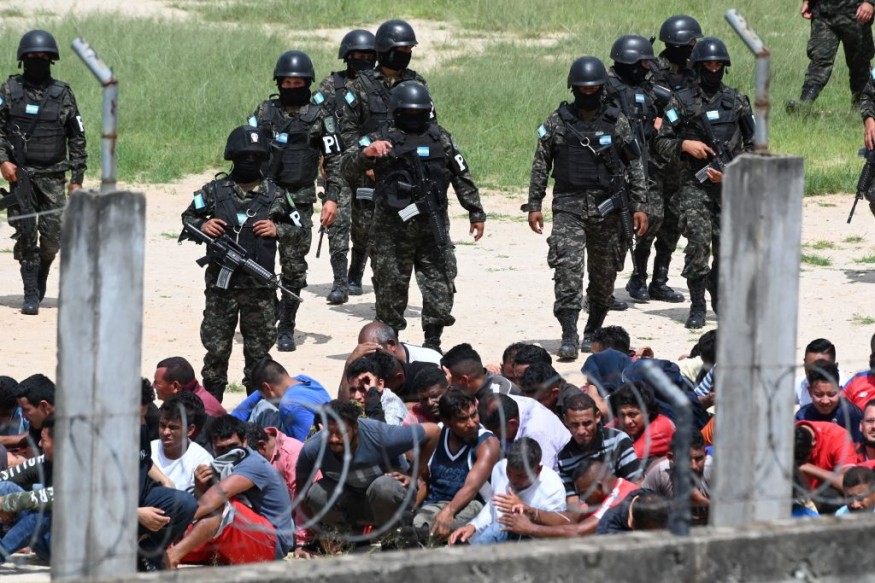Honduras Fortifies Efforts in Cracking Down Prison Gangs by Adopting El Salvador Tactics

The Honduras authorities conducted a prison sweep to crack down on prison gangs following the recent massacre of 46 female inmates in a women's prison, AP reports.
The sweep forced inmates to sit in tight rows, partially naked, while their cells were searched for contraband. Neighboring El Salvador has employed similar tactics in their crackdown on gangs.
The military police, who now oversee the nation's prisons, carried out the operation, emptying cell blocks and arranging inmates in rows with their legs spread and heads bowed.
Some were instructed to keep their hands on the back of their necks. These tactics, which gained attention when used by El Salvadoran President Nayib Bukele, have raised concerns about human rights abuses.
However, they have also garnered support from residents who hope to escape gang violence and extortion oppression.
During the sweep, the military police discovered a significant amount of ammunition, pistols, assault rifles, and grenades in the empty cellblocks.
Videos of the prison raids, accompanied by music, were distributed by the police, following a practice also seen in El Salvador.
Even female inmates were subjected to the same treatment, although they were allowed to keep their shirts on, thanks to the presence of female military police officers.
READ NEXT : Honduras Imposes 15-Day Curfew
Right Groups Slams Honduras for Allegedly Abusing Prisoners
Rights groups in Honduras have raised concerns about apparent abuses as the country adopts anti-prison gang tactics of neighboring El Salvador, according to AP.
However, officials in Honduras have dismissed the criticism, arguing that street gangs are the primary violators of human rights.
Honduran military police commander Ramiro Muñoz, in an interview with local media, defended the government's actions by highlighting the crimes committed by gang members, such as killing, kidnapping, and extortion.
This echoes the dismissive tone taken by El Salvadoran President Nayib Bukele when facing complaints about human rights violations during his country's prison crackdown in 2022. Bukele justified the harsh measures by pointing to the crimes committed by inmates.
In addition to the weapons seized during prison raids, the military police in Honduras also confiscated inmates' guitars, musical devices, and video games, displaying a similar vengeful approach seen in El Salvador.
President Xiomara Castro has declared a state of emergency in certain provinces of Honduras and deployed soldiers to patrol the streets.
The government has also released videos showcasing law enforcement actions, such as tearing down a cyclone fence that a gang had erected to demarcate its territory in a northern town.
The Massacre at Women's Prison
The massacre at the women's prison in Tamara on June 20 was a shocking and brutal event that deeply affected Honduras and drew international attention, per Vice.
According to reports, female prisoners affiliated with the Barrio 18 street gang attacked members of a rival gang in a cellblock, using guns and machetes.
They then set the victims on fire and locked them in their cells, resulting in many casualties. The extent of the violence was so severe that genetic testing was needed to identify some of the badly burned victims.
In response to the massacre, President Xiomara Castro took decisive action. She dismissed the country's security minister, Ramón Sabillón, accusing the security authorities of being complicit in the violence.
Furthermore, President Castro placed the military in charge of the nation's prisons, signaling a shift in the approach to prison management and security.
READ MORE : El Salvador Stampede
This article is owned by Latin Post.
Written by: Bert Hoover
WATCH: Honduras Adopts El Salvador-Style Tactics on Prisons - From Voice of America
Subscribe to Latin Post!
Sign up for our free newsletter for the Latest coverage!
© 2026 Latin Post. All rights reserved. Do not reproduce without permission.














